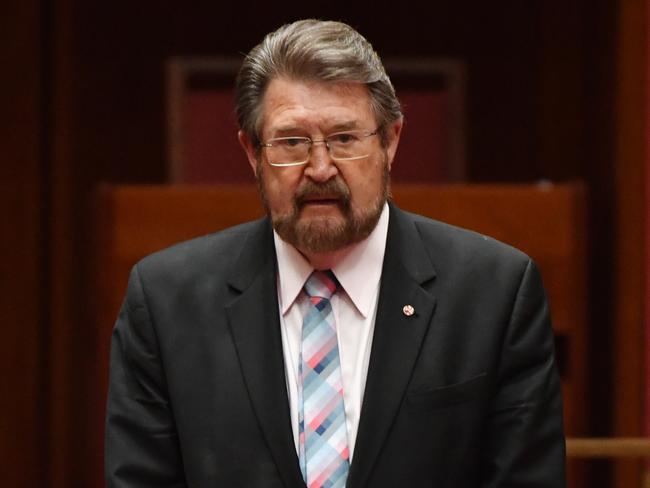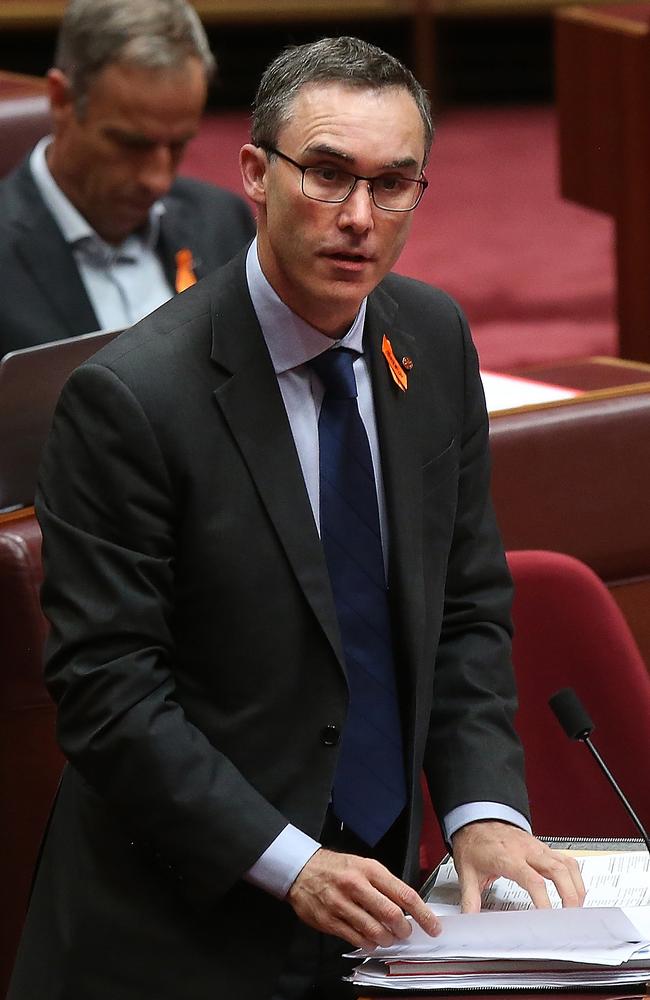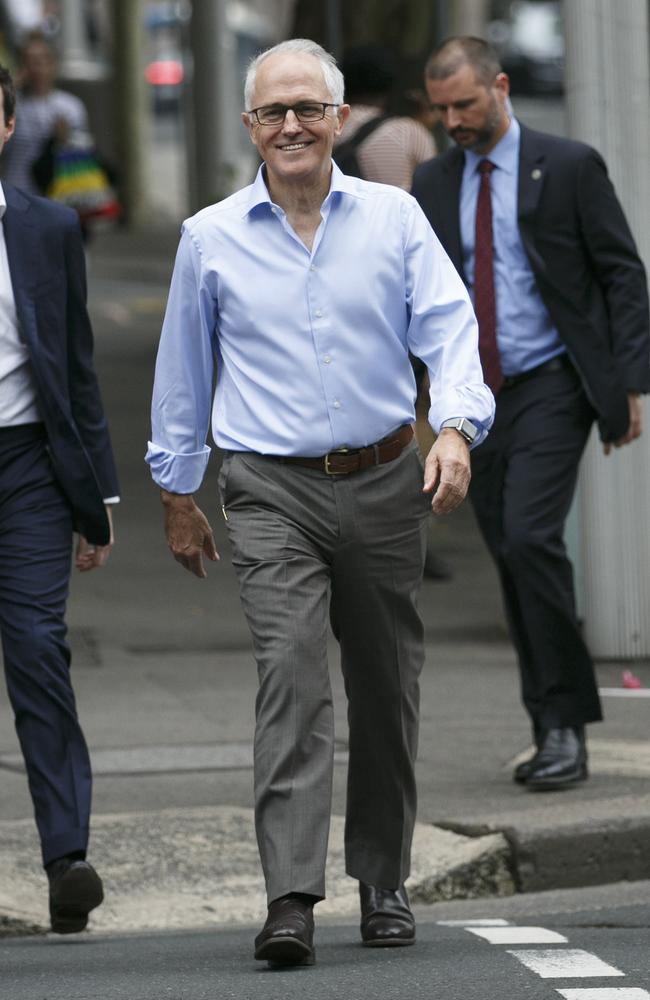David Speers: Only Derryn Hinch and Tim Storer stand between Mal and his corporate tax cuts
The Coalition only needs the support of two crossbench senators to bring in its promised corporate tax cuts — but that may come at a high cost, writes David Speers.
Opinion
Don't miss out on the headlines from Opinion. Followed categories will be added to My News.
HERE we go: And then there were two. The government is tantalisingly close to achieving its long-held dream of a company tax cut for all Australian businesses, but it’s not there yet.
It now has seven of the nine crossbench votes it needs. Derryn Hinch and Senate newbie Tim Storer are at the negotiating table, but are holding out for a better deal.
The commitment from Australia’s biggest companies this week to “invest more” with the extra cash hasn’t been enough to lock in their support. They’ve heard all the arguments about maintaining Australia’s competitiveness and so on.

What they need now is something in return for their support. It’s horse-trading time. And it appears the Finance Minister will need a big cheque book.
It’s Storer’s first week in the Senate, having replaced the Nick Xenophon Team’s Skye Kakoschke-Moore, who was found to be a dual citizen.
He’s sitting as an independent and with everyone in his ear, he’s keeping his cards close to his chest.
►Pauline Hanson deal: Support for Malcolm Turnbull’s corporate tax cuts
Hinch is playing hardball. It was mainly traditional Labor voters who put him in the Senate and, as John Howard used to say, it’s important to “dance with the one who brung ya”.
Hinch wants more rental assistance for the poor, the energy supplement for pensioners kept in place, more regional assistance grants for struggling towns, more support for veterans and, of course, more resources to catch paedophiles overseas.
It’s a wishlist worth about $2 billion. The government is ruling none of this out.
The real sticking point is the banks. To put it mildly, Hinch is not a fan. He does not want the banks given any sort of tax relief.

My Sky News colleague Samantha Maiden asked him directly this week, “Would you back the tax cuts if they said they did not apply to the banks?” “Yes” was his unequivocal reply.
The Prime Minister says this would be too complex.
“With company tax rates they have got to be uniform across the system because otherwise you get into problems of definition, if you say, ‘We are going to have a different tax rate on one sector or another’, how do you define it?”
It’s a fair point, each tax has to be applied fairly across the board. But there is another way, as the government itself has shown.
It imposed the bank levy in last year’s budget as a special tax just for this particular sector. The levy is set to raise $6.2 billion over four years.
According to Mathias Cormann, this effectively “cancels out the effect of the corporate tax cut for the banks already”.
Not according to The Australia Institute, which is fighting against the company tax cut.
It’s crunched the numbers and found once the tax cut fully kicks in, the banks will be substantially better off. Of course, the banks would go crazy at any increase in the levy. But they’re in an even weaker position now than when the tax was first announced.
The opening stages of the royal commission have not painted the banks in a good light at all.
The government doesn’t want to increase the levy. This would be a major cave-in. But it can hardly mount a philosophical argument against such a move, having imposed this special tax in the first place.

Cormann is a skilled and persistent negotiator and may yet convince Hinch and Storer.
Passing these company tax cuts would deliver on Malcolm Turnbull’s biggest election promise, but whether it would help him politically is less clear.
A win in the Senate doesn’t necessarily mean a win with voters, who remain deeply sceptical about giving big corporates a tax break.
Given the biggest firms won’t see the tax cut for several years, it will also be hard for the Prime Minister to parlay this into any tangible results in the lead-up to next year’s election.
“There’s no question that you’ll see a rise in wages with a reduction in company tax,” he declared this week.
It could be a line that comes back to bite at election time if wages haven’t risen at all.
If the Senate does back the company tax cuts, Labor would come under more pressure to explain what it plans to do. Business needs some certainty to invest, after all.
Bill Shorten, however, is unfazed. He knows voters don’t like these tax cuts and he has no qualms about going to the election with a pledge to repeal them.
Labor is likely to keep the tax cut in place for businesses with a turnover up to $10 million. It’s unlikely to go any further than that.
Instead, Shorten wants to go to the election using the money to offer bigger personal income tax cuts and a stronger budget bottom line than the government.
He’ll face a barrage of criticism from business and the government, but it’s nothing he hasn’t heard for the past two years.
The company tax argument still has a long way to run, regardless of what happens in the Senate over the coming days.
